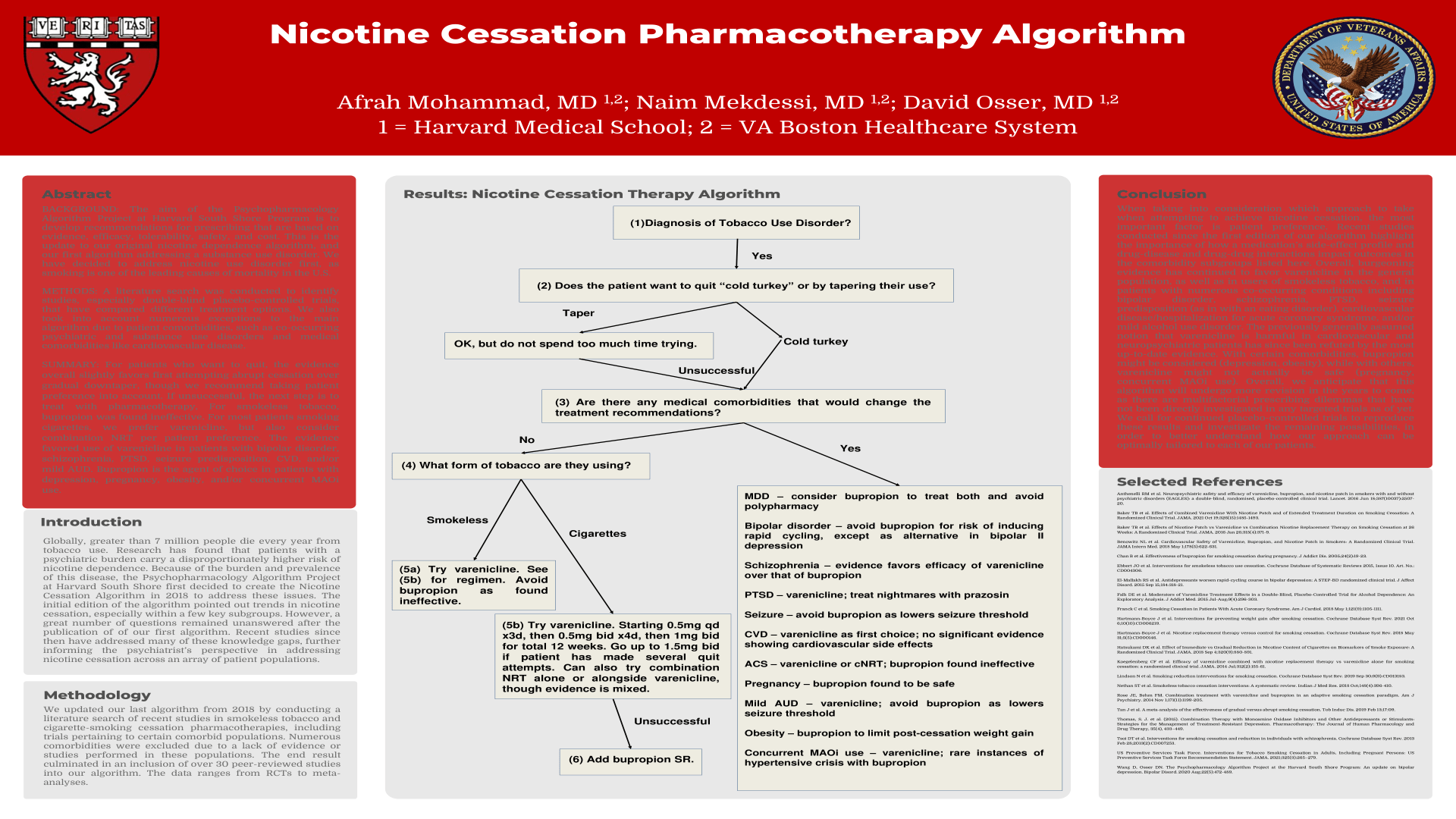Scientific Abstract
Background: The aim of the Psychopharmacology Algorithm Project at Harvard South Shore is to develop prescribing recommendations based on evidence, efficacy, tolerability, safety, and cost. This is the update to our original nicotine dependence algorithm, and our first algorithm addressing a substance use disorder. We chose nicotine use disorder, as smoking is one of the leading causes of mortality in the U.S.
Methods: A literature search was conducted to identify studies, especially double-blind RCTs, that have compared different treatment options. We took into account exceptions to the main algorithm due to psychiatric and medical comorbidities.
Results: For patients who want to quit, the evidence overall slightly favors first attempting abrupt cessation over gradual downtaper, though we recommend taking patient preference into account. If unsuccessful, the next step is to treat with pharmacotherapy, For smokeless tobacco, bupropion was found ineffective. For smokers, we prefer varenicline, but also consider combination NRT per patient preference. The evidence favored use of varenicline in patients with bipolar disorder, schizophrenia, PTSD, seizure predisposition, CVD, and/or mild AUD. Consider bupropion in patients with depression, pregnancy, obesity, and/or concurrent MAOi use.
Conclusions: Patient preference is very important when considering approaches for nicotine cessation. Overall, evidence has continued to favor varenicline in most patients and those with co-occurring conditions including bipolar disorder, schizophrenia, PTSD, seizure predisposition, cardiovascular disease/hospitalization for ACS, and/or mild AUD. The previously popular notion that varenicline is harmful in cardiovascular and neuropsychiatric patients has since been refuted. With certain comorbidities, bupropion might be considered (depression, obesity), while with others, varenicline might not be safe (pregnancy, concurrent MAOi use). Overall, we anticipate that this algorithm will undergo more revision in the years to come, as there are multifactorial prescribing dilemmas that have not been directly investigated in any targeted trials as of yet.
Search posters

